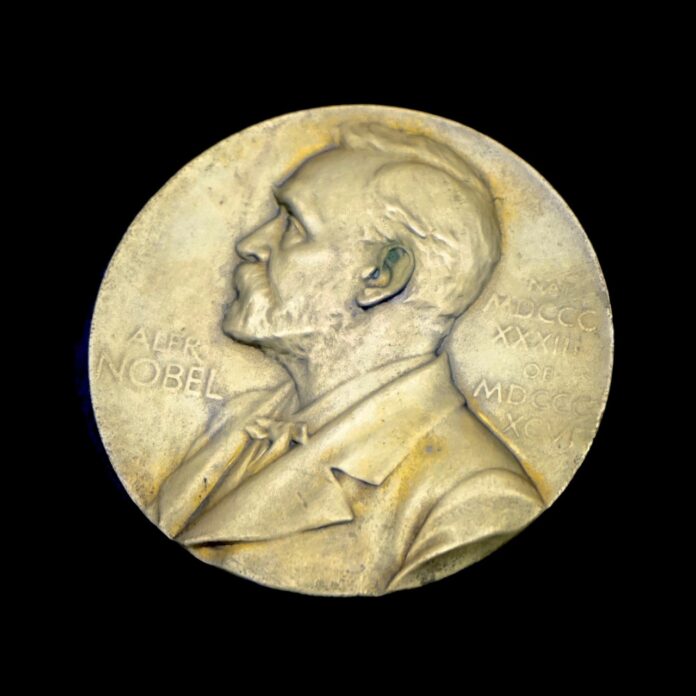The Nobel Prize is one of the most prestigious awards in the world, recognized globally. It is highly esteemed because only a select few have been honored with it. This exclusivity adds to its prestige—if the prize were given out more liberally, it would lose its value. However, many deserving individuals, such as the renowned scientist Stephen Hawking, have never received the Nobel Prize.
Facts About the Nobel Prize:
- The prize’s founder, Alfred Nobel, was a Swedish inventor and industrialist who patented 355 inventions, including dynamite.
- Nobel was inspired to establish the prize after reading a premature obituary that described him as a “merchant of death.” This made him reflect on how he would be remembered, leading him to leave his vast fortune to fund the Nobel Prizes in physics, chemistry, medicine, literature, and peace. Nobel’s relatives, feeling cheated, contested his will for a long time.
- The Nobel Peace Prize committee is based in Norway, while the committees for the other prizes are in Sweden.
- The Nobel Prize ceremony is always held on December 10th.
- These prestigious awards have been presented since 1901.
- On average, about 300 people are nominated for the Nobel Prize each year, and the Nobel Foundation gathers information on ten times as many potential candidates. However, the nominees themselves are unaware, and the information is kept secret for 50 years.
- Initially, Alfred Nobel included mathematics in the list of sciences for which the prize would be awarded, but he later replaced it with the Peace Prize. The reason for this change remains unknown.
- According to the Nobel Foundation’s rules, the Nobel Prize can only be awarded to a person once. However, there have been four exceptions to this rule throughout history.
- In the 1930s, both Adolf Hitler and Benito Mussolini were nominated for the Nobel Peace Prize, but neither received it.
- Approximately 43% of all Nobel Prize winners are U.S. citizens.
- The average age of Nobel laureates is over 50.
- The youngest laureate was 25 years old at the time of receiving the prize, while the oldest was 90.
- The Nobel Peace Prize can be awarded to an individual or an organization, whereas the other prizes can only be awarded to individuals. The International Red Cross, for example, has been awarded the Nobel Peace Prize three times.
- In his will, Alfred Nobel specifically requested that the prize be awarded regardless of the nominees’ nationality. He also asked that the Peace Prize be awarded for contributions to unifying nations, abolishing slavery, and reducing military forces.
- The Nobel Prize has been awarded posthumously twice. In a third case, the Nobel Committee was unaware that the laureate had passed away when they confirmed the award.
- When British physicist Paul Dirac was awarded the Nobel Prize in 1933, he wanted to refuse it because he hated publicity. However, Rutherford persuaded him to accept it, arguing that declining would only draw more attention.
- Several winners have indeed refused to accept the Nobel Prize for various reasons.
- During Nazi Germany, German scientists were officially prohibited from accepting the Nobel Prize, leaving three Germans without it—two chemists and a physician.
- Mahatma Gandhi was nominated for the Nobel Peace Prize five times but never received it.
- The 102nd element in the periodic table, nobelium, is named in honor of Alfred Nobel.
- In 1921, two young scientists approached artist Boris Kustodiev to have their portraits painted, arguing that Kustodiev only painted famous people and that they were sure to become famous themselves. These scientists were future Nobel laureates in physics and chemistry, Pyotr Kapitsa and Nikolay Semyonov.
- A parody of the Nobel Prize, known as the Ig Nobel Prize, is awarded for the most useless and bizarre inventions. Interestingly, Dutch scientist of Soviet origin, Andre Geim, has won both the Nobel and the Ig Nobel Prizes.
- Albert Einstein, who received the Nobel Prize, gave all the prize money to his ex-wife as stipulated in their marriage contract.
- People born on May 21st or February 28th have won the Nobel Prize more frequently than others—seven laureates were born on each of these days.
- The financial award for the Nobel Prize varies from year to year but is generally just over one million dollars.
- No more than three people can win the Nobel Prize in any given year, and the prize is shared among them. However, there have been years when no prize was awarded.
- German physicist Arnold Sommerfeld, known for his work in quantum theory, electron theory, and electrodynamics, was nominated for the Nobel Prize 84 times between 1917 and 1951 but never won. Sommerfeld still holds the record for the most nominations without winning. However, seven of his students became Nobel laureates.
- About 20% of Nobel laureates are Jewish or have Jewish ancestry.
- Alfred Nobel did not specify a prize for economics in his will. The Sveriges Riksbank Prize in Economic Sciences in Memory of Alfred Nobel was established by the Bank of Sweden in 1969 and is often unofficially referred to as the Nobel Prize in Economics.
- It often takes a long time between a scientist’s discovery and their receipt of the Nobel Prize. On average, laureates wait 20-30 years.
